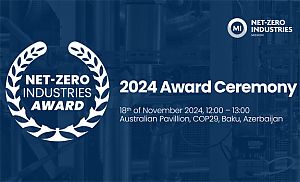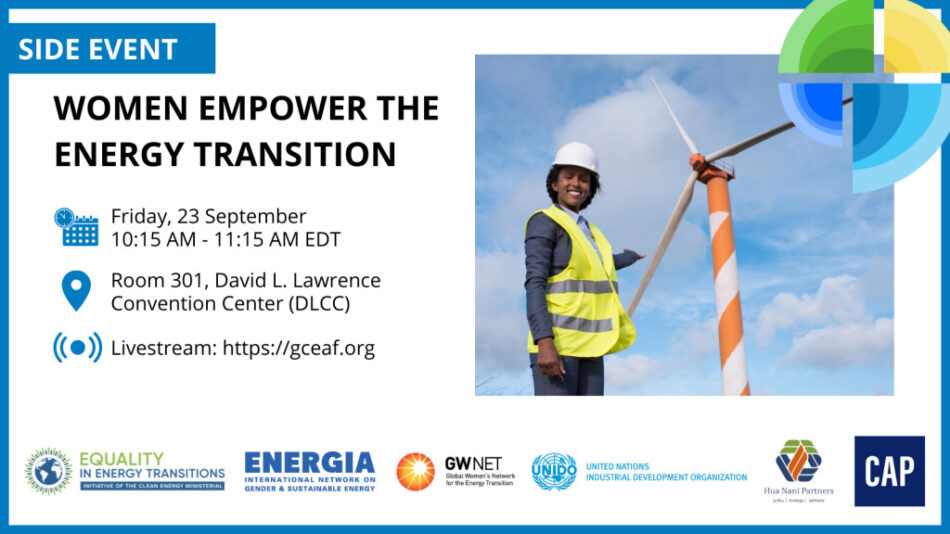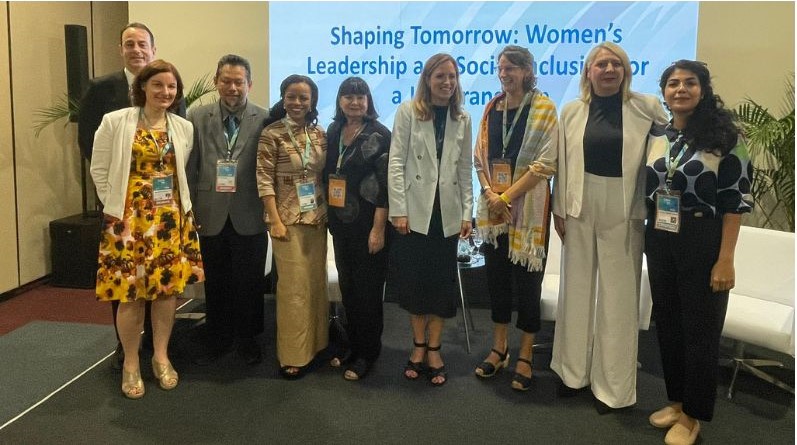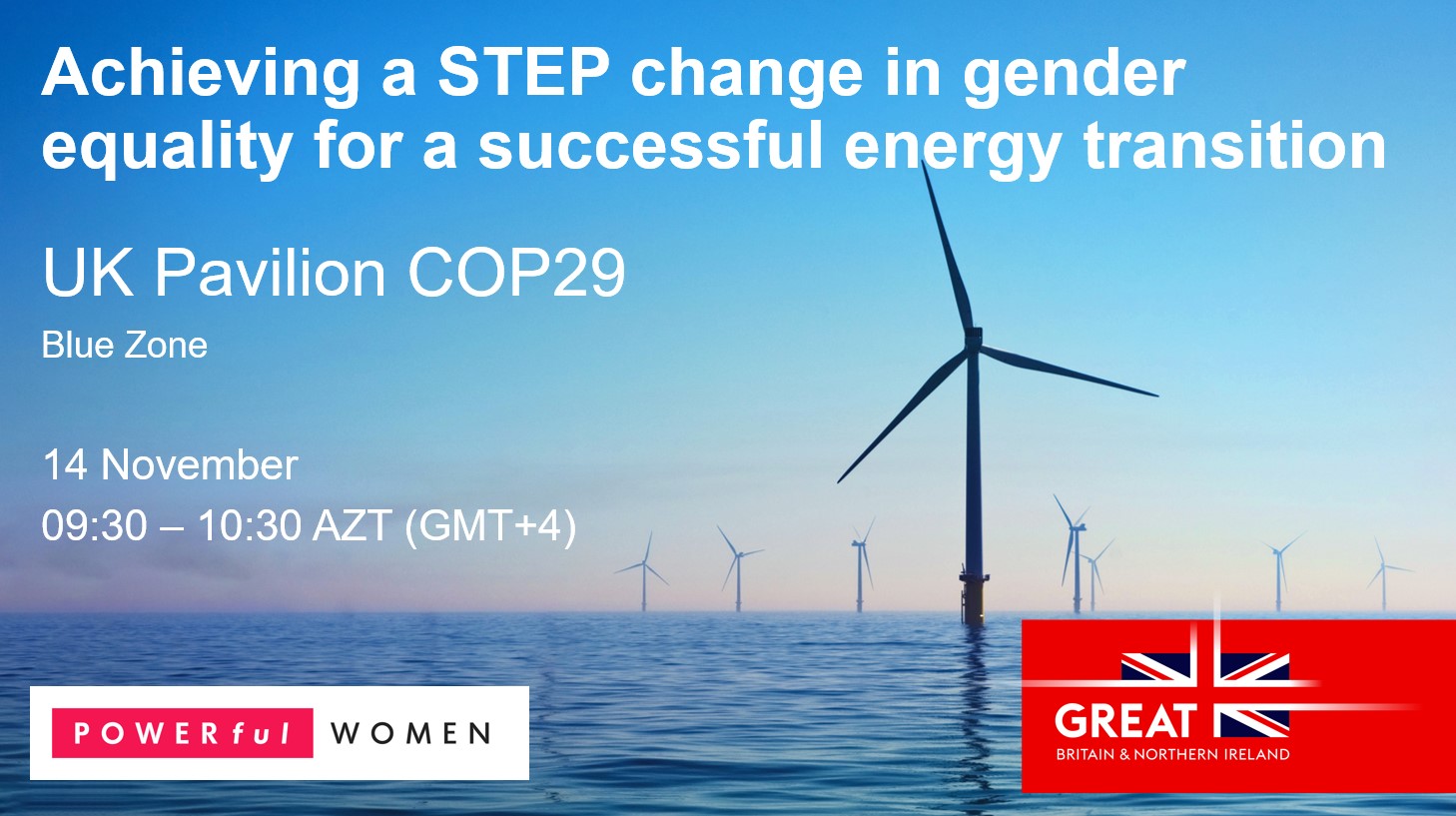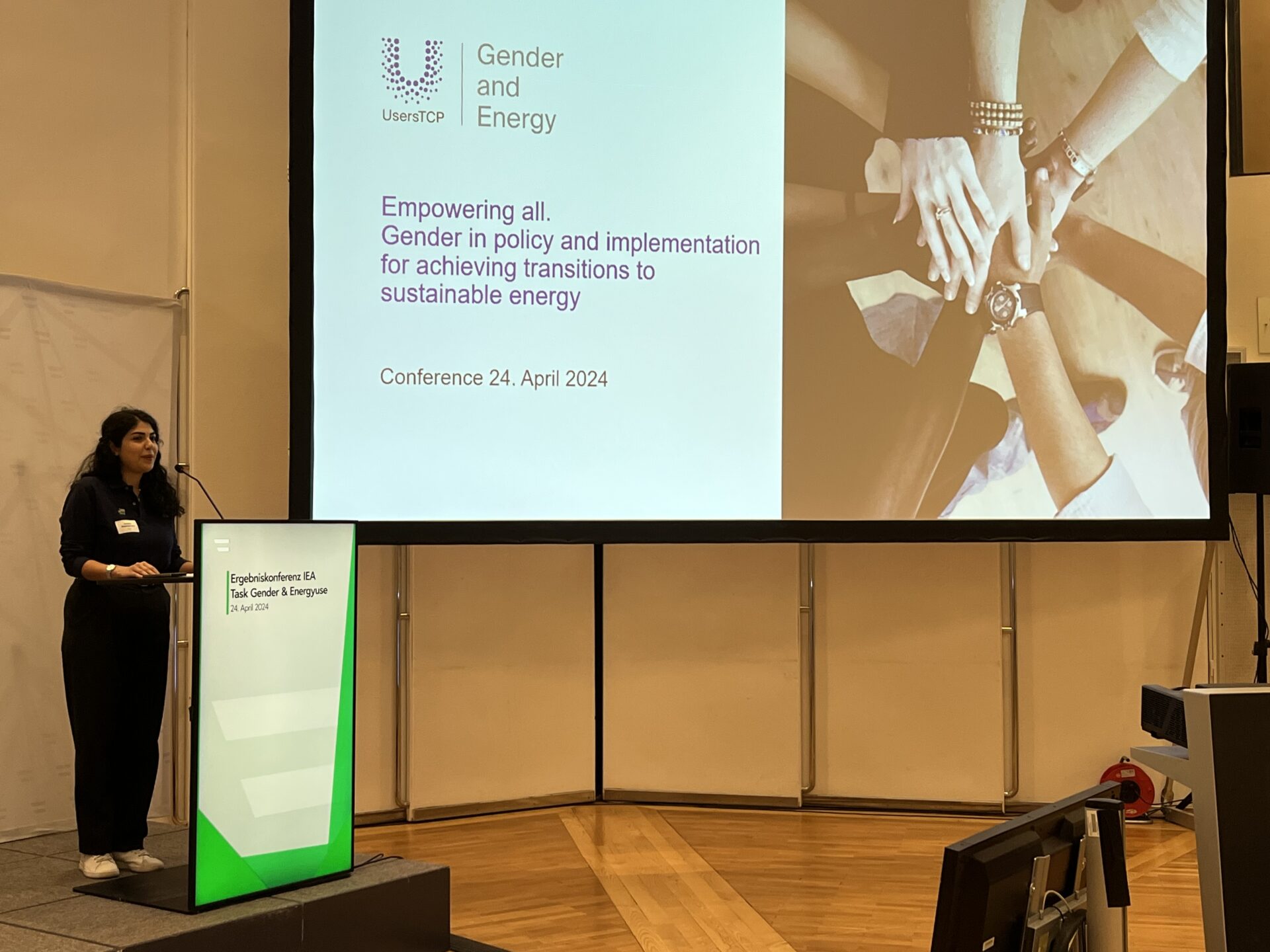
Introduction
As the initial working term of the Gender and Energy Task draws to a close, the Task convened at the “EmPOWERing All: Inclusive Energy Transitions” event in Vienna to discuss its findings, reflect on collaborative efforts, and engage in dialogue with key stakeholders to advance more gender-sensitive, inclusive energy transitions. Additionally, key speakers from various institutions, such as FFG, WIMEN Association, and Hard to Reach Users and Social License for Automation 2.0 TCPs shared their expertise throughout the event, thereby contributing to sustaining dialogues.
Opening Remarks by Sabine Mitter: A Call for Inclusivity in Energy Transition
Sabine Mitter, energy R&D policy advisor, from the Austrian Ministry of Climate Action and Energy (BMK) opened the event with a heartfelt welcome and emphasized the critical importance of gender equity and diversity in the energy transition. She highlighted the User-Centred Energy Systems Technology Collaboration Programme’s (Users TCP) unique focus on the social aspects of energy transition and acknowledged the persistent gender disparity in energy and industrial transformation sectors, particularly in research and development (R&D). While outlining the ministry’s ongoing efforts, Mitter noted the slow pace of change and the need for more robust gender competence in technology collaboration programs.
Christine Meissl: Introducing the DIVERSITEC Initiative
Christine Meissl from the Austrian Research Promotion Agency (FFG) introduced the DIVERSITEC initiative. Launched in March, this program aims to foster organizational development and a culture of innovation within scientific and technical companies by promoting diversity and inclusion. Meissl highlighted the program’s focus on creating environments that value gender equality and diversity and enable participation, career development, and innovation for all employees. The program targets companies with R&D projects or departments and non-university research institutions focused on STEM subjects and supports projects ranging from six months to two years. In addition to DIVERSITEC, Meissl also introduced further funding opportunities aimed at nurturing interest in science and technology among younger generations through internships and regional talent programs.
Anna Åberg: Introducing the Gender and Energy Task
Anna Åberg, senior researcher at Chalmers University and task lead of the Gender & Energy Task, provided a comprehensive overview of the task’s objectives and achievements. Part of the Users TCP, this task focuses on incorporating gender research to make energy solutions and interventions more inclusive and effective. Åberg emphasized that understanding the diverse impacts of technology and policies on different user groups is crucial for a fair, equitable, and inclusive energy transition. Åberg explained that the task’s primary goal is to use gender research to enhance the inclusivity and efficiency of energy solutions. She pointed out the prevalent gender blindness in technology and policy design, which often leads to suboptimal outcomes due to a lack of consideration for diverse user needs.
Empowering Energy Technology Users: Panel Discussion Highlights
The first panel of the day, chaired by Camilla Andersson, brought together Mariëlle Feenstra, Sylvia Breukers, Beatrix Hausner, and Kalle Ekdahl to discuss strategies for empowering users of energy technology and innovation. The panelists shared insights from their respective fields, emphasizing the importance of user-centric design and the challenges faced by different demographic groups in adopting new technologies.
A significant portion of the panel focused on barriers and cultural norms that impede broader participation in energy transition initiatives. Speakers highlighted some of the complexities faced by the users as well as the energy technology developers. For instance, an example was shared from the Netherlands, where a campaign invited parliamentarians to experience the difficulties families face when applying for energy subsidies. The frustration and confusion experienced by these politicians underscored the systemic issues that need addressing and the psychological impacts of these “hassle factors,” which deter many from engaging with energy-saving measures.
Educational disparities also play a role. It was highlighted by one of the speakers that pilot projects in middle-class neighborhoods revealed that even well-educated individuals often struggle with the complexities of smart energy solutions. Women, in particular, tend to blame themselves for difficulties in understanding these systems, whereas men more often blame the system itself. This gendered response indicates a need for more user-friendly designs and better support mechanisms.
Designing Inclusive Energy Technology: Interactive Workshop
Following the panel, an interactive workshop led by Kalle Ekdahl and Katharina Merl from Boid AB focused on designing inclusive energy technology. Participants engaged in hands-on activities to delve into designing technology that considers diverse user needs. Ekdahl distinguished between norm critique, which challenges existing norms to define the product scope, and norm creativity, which focuses on solving identified problems by creating innovative solutions. Participants engaged in an activity called “Speculative Norms,” where they received cards presenting different future scenarios based on norm perspectives and societal development. They selected a scenario and analyzed its implications, detailing potential design solutions. This exercise highlighted the importance of considering diverse perspectives and long-term impacts in technology design, fostering innovation that is inclusive and responsive to varied user needs. Furthermore, it exemplified how speculative and inclusive design methodologies can create more user-centered and equitable energy technologies, aligning with the broader goals of the event.
Gender-Responsive Energy Policies: Panel Discussion Highlights
In the afternoon, the second panel chaired by Mariëlle Feenstra brought together experts Joy Clancy, Azadeh Badieijaryani, Martin Hultman, and Susanne Wolf-Eberl to discuss gender-responsive energy policies. The panelists examined how current policies can be improved to better address the needs of diverse populations and promote gender equity in the energy sector.
While Joy Clancy, Emeritus Professor of Energy and Gender, shed light on the lack of comprehensive data on gender impacts in energy transition policies, Martin Hultman, Associate Professor at Chalmers University of Technology, delved into the intersection of masculinity norms and the energy sector. Azadeh Badieijaryani and Susanne Wolf-Eberl called for cross-ministerial collaborations and multi-level approach to enhance policy development and implementation, and governance at local, national and international levels.
Knowledge Gaps: Gender and Energy
The final session of the day, chaired by Anna Åberg, featured presentations by Kavya Michaels, Mariëlle Feenstra, and Lisa Diamond on the knowledge gaps in gender and energy research. The speakers highlighted areas where more research is needed to inform effective policy and practice, emphasizing the importance of intersectional approaches to understanding energy use and access.
Kavya Michaels presented the global overview of the Gender and Energy Task, emphasizing the need for a deeper understanding of gender and energy intersections. The analysis revealed significant epistemic injustice in energy justice and gender scholarship, with a lack of recognition for contributions from non-Western scholars. Lisa Diamond brought attention to the concept of social license for automation, emphasizing the necessity of community acceptance and engagement in the integration of new energy technologies. Finally, Mariëlle Feenstra emphasized the challenges faced by hard-to-reach energy users, particularly women, the elderly, and migrants, and proposed community-driven approaches for engagement.
Conclusion: A Collaborative Effort Towards Inclusive Energy Solutions
Closing the event, Camilla Andersson noted that with initiatives like DIVERSITEC and the Gender & Energy Task, there is a concerted effort to address gender disparities and promote inclusivity within the energy sector. Addressing practical barriers, enhancing digital literacy, and considering cultural and social norms are crucial steps toward achieving a more equitable, resilient and sustainable energy future. Andersson highlighted that the Gender and Energy Task has demonstrated a collective commitment to fostering inclusivity and diversity within the energy sector, recognizing the multifaceted challenges that lie ahead. By amplifying diverse voices, implementing gender-responsive policies, and fostering innovation through inclusive design, we all embark on a journey towards a future where energy solutions empower and uplift all members of society, leaving no one behind.
For further information about the Task, please click here.

